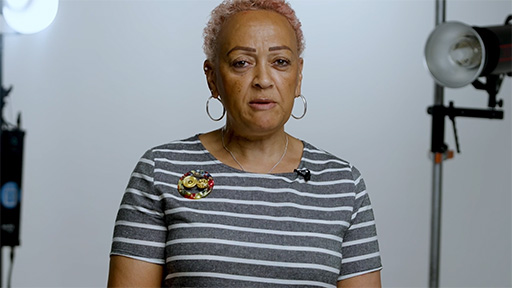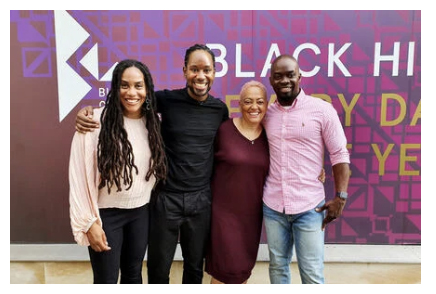Introducing Union Black
Introduction
Welcome to this free course, Introducing Union Black. Start by watching the following video which gives an overview of the course.

Transcript: Video 1 Lurraine Jones introduces the course
Please note that although the video mentions the course taking an hour to study, it may take you up to three hours.
This course will aim to build your confidence as a change agent for equity, diversity, inclusion and belonging. For many of you, this will be a journey into little-known or misunderstood history and experiences of people racialised as Black (Black*, white and race being racially constructed terms), and, for many others, it will be an affirmation of your rightful place in our diverse twenty-first-century society. Whatever your background, hopefully both experiences will provide you with the opportunity to hear from contributors from a range of backgrounds, lived experiences, thoughts and voices, which are designed to help inform, inspire, challenge and enable you to take steps towards anti-racism. This is just one contribution to a much wider conversation that has been happening between Black scholars, writers, artistes, activists and citizens for many generations.
* Black with a capital B is used as explained here by Associated Press (AP) (2020): ‘AP’s style is now to capitalize Black in a racial, ethnic or cultural sense, conveying an essential and shared sense of history, identity and community among people who identify as Black, including those in the African diaspora and within Africa. The lowercase black is a color, not a person.’
Why was this course created?
The racial uprisings of 2020 forced a global conversation about racism, and more specifically anti-Blackness, and the insidious ways that it has shape-shifted over time. A Universities UK report about racial harassment on campus in 2020, alongside the murder of George Floyd in the US and the stark racial inequities that were highlighted during the COVID-19, led to this course being created by Black UK academics.
Why should I study this course?
The course is, for many people, seen as ‘the right thing to do’. But, let’s face facts – not everyone agrees with that view. Not convinced from the moral standpoint? Well, there are professional benefits to engaging with ‘Union Black’. People doing this course will gain key ‘soft’ employability skills that can make them desirable to an organisation, i.e. empathy, emotional intelligence, cultural awareness, communication, leadership and teamwork. Engaging with the course will contribute to building skills, including empathy, understanding anti-racism, understanding different cultures, diversity, inclusion and allyship – increasingly ‘essential’ in job descriptors and promotion criteria.
Who is this course for?

This course is for everyone, as cultural awareness sets the foundation and context for more insightful, effective and respectful interactions between individuals and communities. Remember, we are individuals with different histories, ages, lived experiences, cultures, perspectives, attitudes and roles. The course authors just hope and ask that you engage with an open mind and with curiosity, that you challenge yourself, you are willing to unlearn and learn, and want to learn even more!
Did you see the ‘new Union Flag’?
The New Union Flag (NUF) re-imagines the Union Jack and celebrates the communities that have contributed to the UK’s cultural legacy. Re-created with fabric designs from all over the world, the New Union Flag transforms the traditional Union Jack from an archetype of uniformity into a dynamic and celebrational on-going performance of diversity. While this flag started as a reflection on the UK’s colonial legacy, its design is ever-changing to reflect the ongoing cultural diversity in the UK.
An important disclaimer
Please acknowledge that various subject matters might be triggering for yourself and for other people. Remember: how we experience the world may not be how another person experiences the world.
